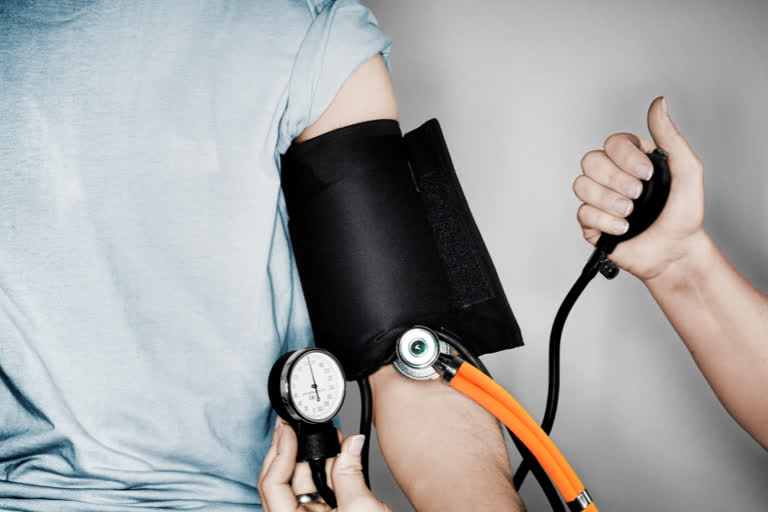Having high blood pressure more than doubled a person’s risk for hospitalization from an Omicron-variant COVID-19 infection – even despite full vaccination including a booster dose of the COVID-19 vaccines, in an analysis of adults hospitalized with COVID-19 in Los Angeles between December 2021 and April 2022, according to new research published today in Hypertension, an American Heart Association journal.
The impact of high blood pressure, also known as hypertension, on severe COVID-19 illness remained even in the absence of other chronic diseases such as type 2 diabetes, kidney disease or heart failure. “These findings are important since about half of the adults in the U.S. have high blood pressure,” said the study’s lead author Joseph E. Ebinger, M.D., M.S., an assistant professor of cardiology and director of clinical analytics of the Smidt Heart Institute at the Cedars-Sinai Medical Center in Los Angeles.
COVID-19 vaccines helped reduce death and some of the most severe side effects from the infection early in the pandemic. A COVID-19 vaccine booster dose further reduced risks of severe illness by up to 70%, according to an observational study in Israel; however, a portion of fully vaccinated and boosted people still required hospitalization for COVID-19 during an early surge of the Omicron variant.
According to the U.S. Centers for Disease Control and Prevention, the Omicron variant was first detected in the United States in December 2021 and continues to be the dominant variant. As of July 2022, seven Omicron subvariants have been identified.
While Ebinger and colleagues did not differentiate in this study which Omicron subvariants were present in this study group, they sought to understand the characteristics associated with the people who had COVID-19 cases severe enough to require hospital care despite having the full COVID-19 vaccine series and a booster dose.
Also read: COVID survivors likely to develop heart diseases, diabetes in 3 months
“Our data found that it is not just older adults with other underlying health conditions who are vulnerable,” Ebinger said. “Breakthrough Omicron infection severe enough to cause hospitalization can happen to an adult of any age, especially if a person has high blood pressure, even if they have no other major chronic disease. The people who are most at risk are not necessarily who we think they are. They are not the sickest of the sick, and this was a surprising finding.”
Researchers conducted a retrospective cohort study of 912 adults who had received at least three doses of an mRNA COVID-19 vaccine (either the Pfizer-BioNTech or Moderna COVID-19 vaccines, authorized by the U.S. Food and Drug Administration) and were treated for COVID-19 during an Omicron surge, between December 2021 and April 2022, in the greater Los Angeles area. Demographic information, including age, gender, race, ethnicity and clinical data from electronic health records, were also examined. Scientists identified key variables and clinical characteristics, such as the presence of chronic health conditions, including type 2 diabetes, kidney disease, heart attack, heart failure and prior chronic pulmonary obstructive disease or asthma.
The analysis found:
- Of the 912 adults who received three doses of an mRNA COVID-19 vaccine, nearly 16% required hospitalization.
- Older age, high blood pressure, chronic kidney disease, heart attack, heart failure and the time between the last vaccination and COVID-19 infection were all associated with greater risks of hospitalization.
- Individuals with high blood pressure were 2.6 times more likely to require hospital care for severe COVID-19 illness, even when the person had no other serious chronic health condition
- Of the 145 patients hospitalized, 125 of them (86.2%) had high blood pressure.
- “We need to raise awareness and understanding that receiving three doses of a vaccine may not prevent severe COVID-19 in everyone, especially among people with high blood pressure. We also need more research to understand why there is this link between high blood pressure and excess risk for more severe COVID-19 illness,” Ebinger added.
Researchers said further study is warranted on how to reduce risks for serious COVID-19 infection, whether through more tailored vaccine regimens, new therapeutics or a combination approach. The biological mechanism underpinning the connection between high blood pressure and severe COVID-19 is another topic scientists say needs more exploring. Since scientists conducted a retrospective analysis using data from a single medical center, the results may not be generalizable.



